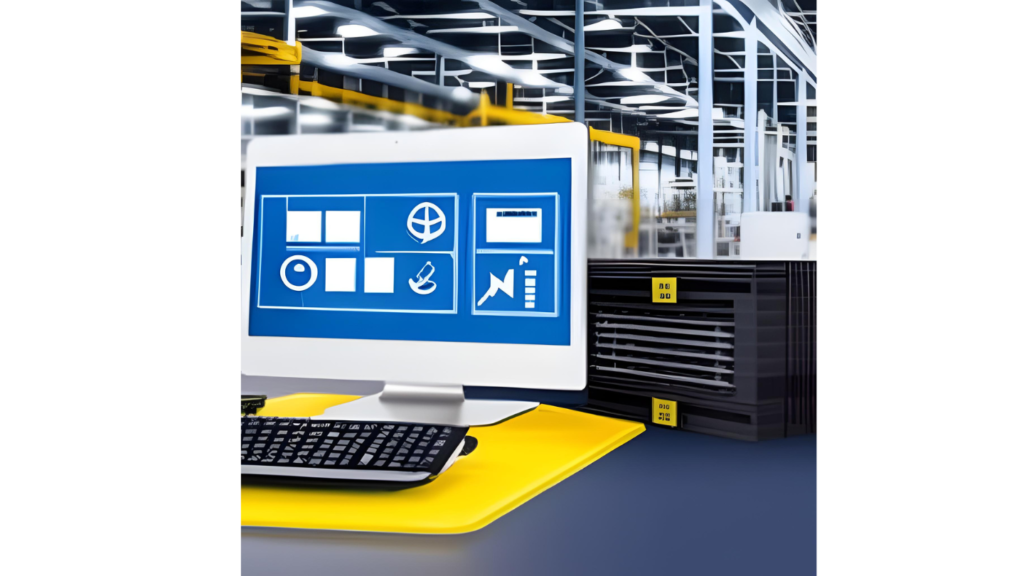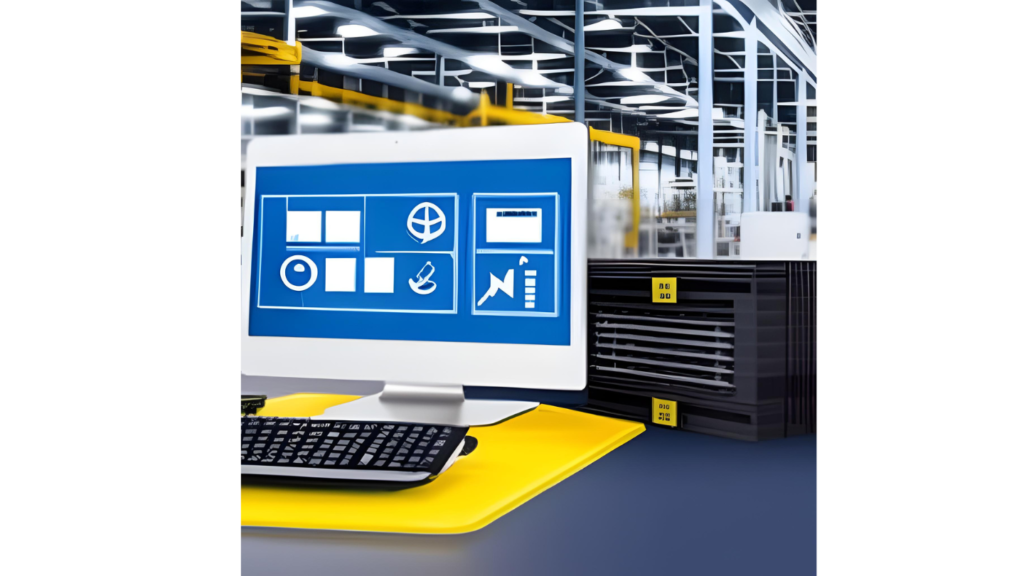Manufacturing has always been at the forefront of technological advancements, driving innovation and economic growth. In the realm of industrial engineering, the future holds tremendous potential for transformation. This article explores the exciting developments shaping the future of manufacturing, from automation and digitalization to sustainable practices and human-machine collaboration.
Table of Contents
1. Introduction
The manufacturing industry has come a long way from the traditional assembly lines of the past. With the advent of new technologies and the rise of industrial engineering, the future of manufacturing is poised for a revolution. This article delves into the key trends and advancements that will shape the landscape of manufacturing in the years to come.
2. Evolution of Manufacturing
Before delving into the future, it is essential to understand the evolution of manufacturing. From the first Industrial Revolution that introduced mechanization to the modern era of smart factories, each phase has brought significant advancements. The future builds upon this foundation, leveraging cutting-edge technologies to redefine manufacturing processes.
3. Role of Industrial Engineering

Industrial engineering plays a pivotal role in optimizing manufacturing operations. By analyzing and improving complex systems, industrial engineers enhance efficiency, productivity, and quality. They integrate people, processes, and technology to design innovative solutions that address operational challenges and maximize resource utilization.
4. Advancements in Automation
Automation is a driving force behind the future of manufacturing. It streamlines processes, reduces errors, and enhances productivity. Several key technologies are revolutionizing the automation landscape.
4.1 Robotics
Robots are increasingly taking center stage in manufacturing facilities. With advancements in robotic technology, they are becoming more flexible, intelligent, and capable of performing complex tasks. Collaborative robots, or cobots, work alongside human operators, augmenting their capabilities and improving overall productivity.
4.2 Artificial Intelligence
Artificial Intelligence (AI) is revolutionizing manufacturing by enabling machines to learn, reason, and make autonomous decisions. AI-powered systems optimize production schedules, predict maintenance needs, and enhance quality control. Machine learning algorithms analyze vast amounts of data to identify patterns and optimize processes, driving efficiency and reducing costs.
4.3 Internet of Things
The Internet of Things (IoT) connects machines, devices, and sensors, enabling seamless data sharing and communication. In manufacturing, IoT facilitates real-time monitoring, predictive maintenance, and inventory management. By harnessing IoT capabilities, manufacturers can optimize operations, reduce downtime, and improve overall equipment effectiveness.
5. Digitalization and Data Analytics
Digitalization and data analytics are transforming the manufacturing landscape, driving informed decision-making and operational excellence.
5.1 Big Data Analytics
The availability of vast amounts of data presents new opportunities for manufacturers. Big data analytics leverages advanced algorithms to extract
valuable insights from this data, enabling manufacturers to make data-driven decisions. By analyzing production data, manufacturers can identify bottlenecks, optimize processes, and improve overall efficiency.
5.2 Predictive Maintenance
Predictive maintenance utilizes data analytics and machine learning algorithms to forecast equipment failures and schedule maintenance activities proactively. By monitoring equipment performance in real-time and analyzing historical data, manufacturers can detect potential issues before they lead to costly breakdowns. This approach helps minimize downtime, reduce maintenance costs, and extend the lifespan of machinery.
6. Additive Manufacturing

Additive manufacturing, also known as 3D printing, is revolutionizing the manufacturing industry. This innovative technique enables the production of complex, customized parts with greater efficiency and precision. With additive manufacturing, manufacturers can reduce material waste, shorten production cycles, and create intricate designs that were previously impossible to achieve.
6.1 3D Printing
3D printing is transforming various sectors, including aerospace, automotive, and healthcare. It allows for rapid prototyping, enabling engineers to test and refine designs quickly. Additionally, it opens up new possibilities for customization, as products can be tailored to specific customer needs. As the technology continues to advance, 3D printing will become even more accessible and cost-effective.
6.2 Rapid Prototyping
Rapid prototyping is a crucial aspect of the product development process. By utilizing technologies like 3D printing, manufacturers can quickly create prototypes, iterate designs, and gather valuable feedback. This accelerates the product development cycle, reduces costs, and enhances innovation.
7. Sustainable Manufacturing
Sustainability is a pressing concern in the manufacturing industry. As the world strives to reduce carbon emissions and minimize environmental impact, manufacturers are adopting sustainable practices.
From using renewable energy sources and optimizing energy consumption to implementing circular economy principles and reducing waste generation, sustainable manufacturing aims to create products in an environmentally responsible manner. By adopting sustainable practices, manufacturers can enhance their brand reputation, comply with regulations, and contribute to a greener future.
8. Human-Machine Collaboration
The future of manufacturing lies in the collaboration between humans and machines. While automation and robotics have automated repetitive tasks, humans continue to play a crucial role in decision-making, creativity, and problem-solving.
Collaborative robots, as mentioned earlier, work alongside human operators, assisting them in tasks that require precision or strength. This collaboration enhances productivity, improves workplace safety, and allows humans to focus on more complex and strategic aspects of manufacturing.
9. Supply Chain Optimization
Efficient supply chain management is vital for the success of manufacturing operations. The future of manufacturing will see further optimization through advanced technologies and data-driven approaches.
By leveraging real-time data, manufacturers can track inventory levels, optimize logistics, and streamline procurement processes. Supply chain visibility and transparency enable faster response times, reduced costs, and improved customer satisfaction.
10. Cybersecurity in Manufacturing
As manufacturing becomes increasingly digitized and connected, the need for robust cybersecurity measures becomes paramount. Cyber threats pose risks to intellectual property, sensitive data, and operational continuity.
Manufacturers must invest in cybersecurity infrastructure, implement encryption protocols, and regularly update their systems to mitigate risks. By safeguarding their digital assets, manufacturers can protect their reputation, maintain customer trust, and ensure uninterrupted operations.
11. Future Job Roles
The future of manufacturing will bring about new job roles and skills. As automation and digitalization reshape the industry, the demand for professionals adept in areas such as data analytics, robotics, and cybersecurity will increase. Additionally, there will be a growing need for individuals skilled in managing human-machine collaboration and driving innovation.
12. Challenges and Opportunities
While the future of manufacturing is promising, it also presents challenges that must be addressed. Workforce transformation, adapting to
new technologies, and managing the ethical implications of automation are some of the challenges that manufacturers will face. However, these challenges also bring opportunities for growth and innovation.
Embracing the future of manufacturing requires a proactive mindset, continuous learning, and the willingness to adapt to changing technologies and market dynamics. By staying ahead of the curve and embracing emerging trends, manufacturers can position themselves for success in the evolving landscape.
13. Conclusion
The future of manufacturing in industrial engineering is characterized by technological advancements that are reshaping traditional processes. Automation, digitalization, additive manufacturing, sustainability, and human-machine collaboration are key drivers of this transformation. By embracing these trends, manufacturers can enhance productivity, optimize supply chains, and achieve sustainable practices.
However, the future also poses challenges that require careful consideration, such as cybersecurity and workforce transformation. By proactively addressing these challenges and leveraging the opportunities presented by emerging technologies, manufacturers can thrive in the dynamic and ever-evolving manufacturing industry.
Reference : https://en.wikipedia.org/wiki/Artificial_intelligence_in_industry
About ELGC
We have recently attained the ISO9001-2015 certification for Constructional and Engineering Contracting related to Technology Projects in addition to the other activities.
FAQs
How can manufacturers prepare for the future of manufacturing?
Manufacturers can prepare for the future by embracing emerging technologies, fostering a culture of innovation, investing in workforce development and upskilling, and staying informed about industry trends and best practices.
How can manufacturers ensure cybersecurity in a digitized environment?
Manufacturers can ensure cybersecurity by investing in robust infrastructure, implementing encryption protocols, conducting regular security audits, and educating employees about best practices for online security.
What are the emerging job roles in the future of manufacturing?
Emerging job roles in the future of manufacturing include data analysts, robotics engineers, cybersecurity specialists, and professionals skilled in human-machine collaboration and innovation management.
How does sustainable manufacturing benefit the industry?
Sustainable manufacturing reduces environmental impact, enhances brand reputation, and helps comply with regulations. It also drives innovation and cost savings through resource optimization and waste reduction.
Will automation replace human workers in manufacturing?
While automation will automate certain tasks, it is unlikely to completely replace human workers. The future of manufacturing lies in human-machine collaboration, where automation enhances human capabilities and allows for more efficient and safe operations.

